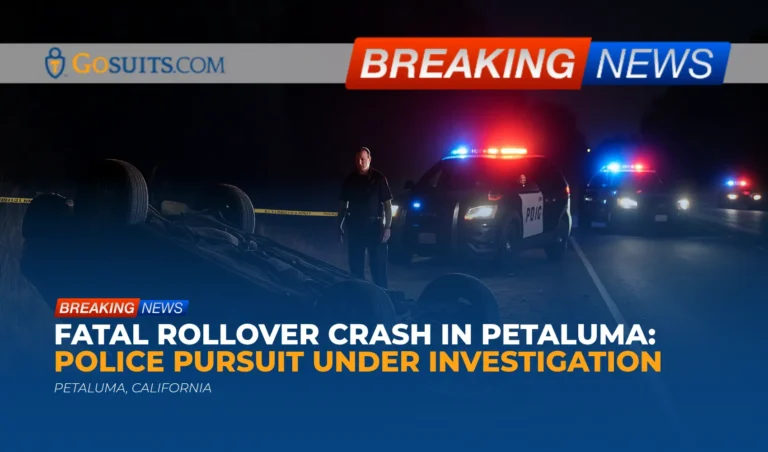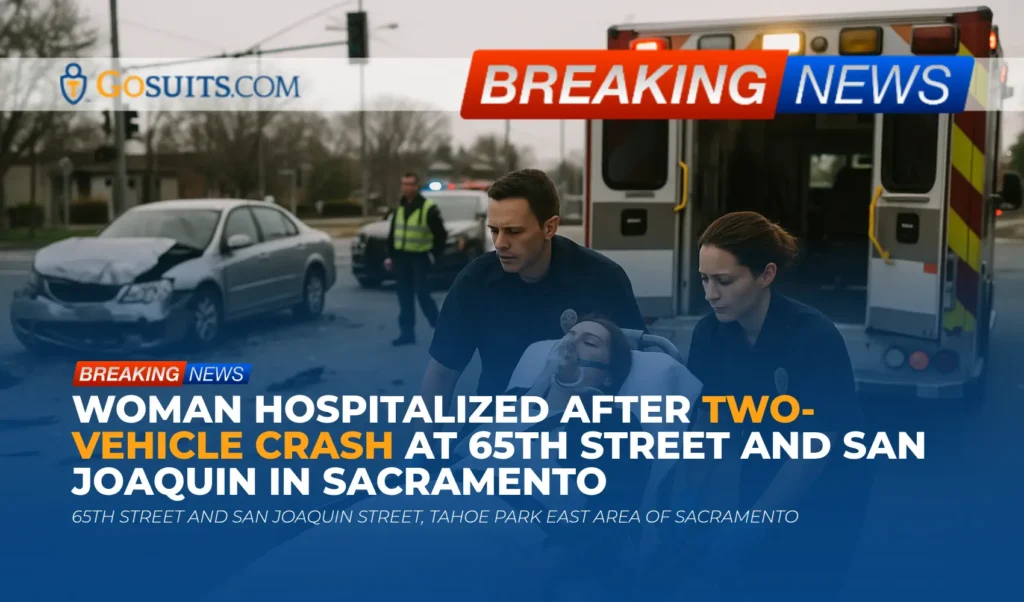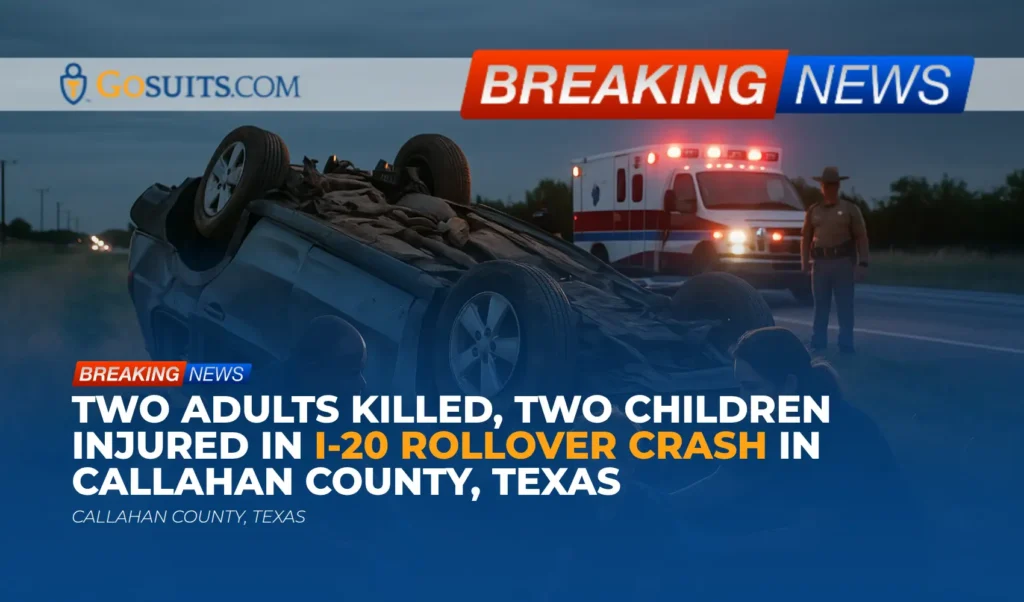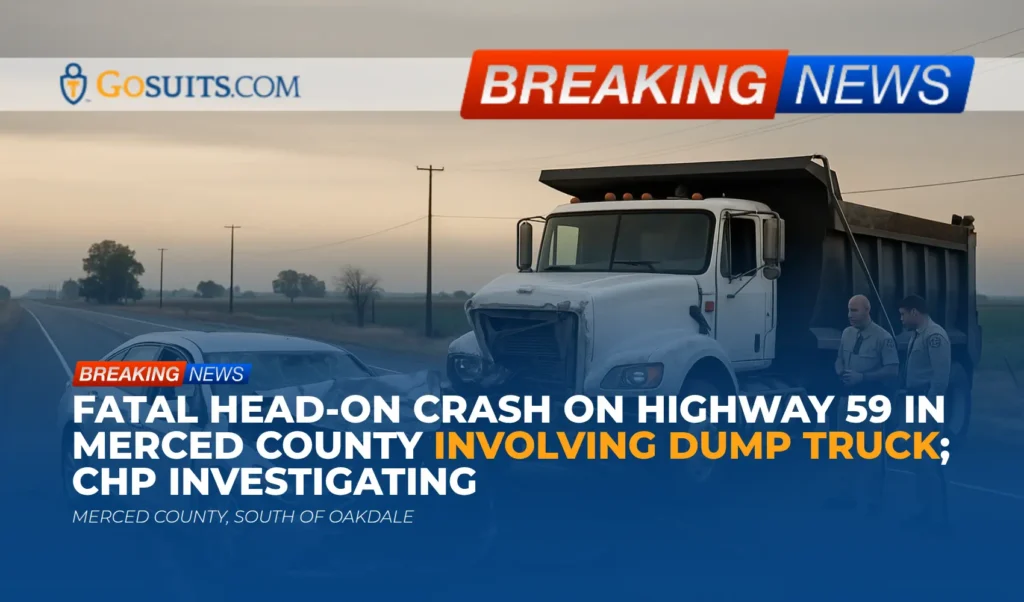A tragic rollover crash in Petaluma, California, has left one person dead and three others critically injured. The incident occurred on Saturday night, July 20, 2025, following a police pursuit that began after a report of a potentially intoxicated driver. This incident raises significant questions about liability, victim rights, and the broader implications of police pursuits, particularly in the context of personal injury law.
Incident Overview
At approximately 10:10 p.m., Petaluma police officers responded to a call at a gas station on Lakeville Highway. The call reported a driver who appeared to be intoxicated. Upon arrival, the driver allegedly fled the scene in a vehicle carrying three passengers. A police pursuit ensued, ending when the vehicle crashed and overturned off Lakeville Highway near Old Lakeville Road No. 1, just east of the Petaluma city limits.
One of the passengers was pronounced dead at the scene. The driver and the remaining two passengers sustained critical injuries and were transported to trauma centers for treatment.
Investigation and Protocol
Due to the severity of the incident and the involvement of law enforcement, the Sonoma County Law Enforcement Chiefs Association Employee-Involved Critical Incident Protocol was initiated. This protocol triggers an independent investigation led by outside agencies to ensure transparency and objectivity.
The Santa Rosa Police Department has taken over the investigation, with the California Highway Patrol (CHP) leading the traffic collision investigation. The Sonoma County District Attorney’s Office is also participating in the investigation. This multi-agency approach underscores the complexity of the situation and the need for a thorough examination of the events leading up to the crash.
Legal Implications of Police Pursuits
Police pursuits are inherently dangerous and involve a complex balancing act between public safety and the need to apprehend suspected lawbreakers. When a pursuit results in a crash causing injury or death, multiple legal issues come into play.
Liability in Pursuit-Related Accidents
Determining liability in pursuit-related accidents is a multifaceted process. Several factors are considered, including:
- The Reason for the Pursuit: Was the initial reason for the stop and subsequent pursuit justified? Did the suspected offense warrant the risk of a high-speed chase?
- Police Conduct During the Pursuit: Did the officers involved adhere to established pursuit policies and protocols? Were appropriate safety measures taken to minimize the risk to the public?
- Driver Negligence: Was the fleeing driver impaired or otherwise negligent in their operation of the vehicle?
- Causation: Was the pursuit a direct cause of the crash and resulting injuries or death?
Potential Parties at Fault
In personal injury cases stemming from police pursuits, potential parties who may be held liable include:
- The Fleeing Driver: If the driver’s negligence (such as driving under the influence or reckless driving) contributed to the crash, they may be held liable for damages.
- The Police Department: If the officers involved acted negligently or violated pursuit policies, the police department or municipality may be held liable. This could involve issues such as initiating a pursuit for a minor offense, failing to terminate the pursuit when it became too dangerous, or employing improper pursuit tactics.
- Other Third Parties: In some cases, other parties, such as vehicle manufacturers or roadway maintenance entities, may bear some responsibility if vehicle defects or hazardous road conditions contributed to the crash.

The Role of Negligence
Negligence is a key element in personal injury claims. To establish negligence, it must be shown that a party had a duty of care, breached that duty, and that the breach directly caused the injuries or death.
In the context of a police pursuit, this could mean demonstrating that the officers involved had a duty to conduct the pursuit in a safe manner, that they breached that duty by acting recklessly or violating policies, and that their actions directly led to the crash and resulting harm. It could also mean showing that the fleeing driver acted negligently, causing the crash.
Sovereign Immunity
Governmental entities, including police departments, often have some degree of sovereign immunity, which protects them from certain types of lawsuits. However, this immunity is not absolute and may be waived in certain circumstances, such as when officers act negligently or violate established policies. Navigating sovereign immunity laws requires a seasoned understanding of the applicable state and federal regulations.
Rights of Victims and Families
Victims of pursuit-related accidents, and their families, have legal rights that should be protected. These rights may include the ability to pursue compensation for:
- Medical Expenses: Costs associated with treating injuries sustained in the crash, including hospitalization, surgery, rehabilitation, and ongoing care.
- Lost Income: Wages lost as a result of being unable to work due to injuries.
- Pain and Suffering: Compensation for the physical pain and emotional distress caused by the injuries.
- Wrongful Death: In cases where a fatality occurs, the deceased’s family may be able to pursue a wrongful death claim to recover damages for their losses, including funeral expenses, loss of companionship, and loss of financial support.
Importance of Legal Counsel
Given the complexities of pursuit-related accident cases, it is crucial for victims and their families to seek legal counsel from a seasoned personal injury attorney. An attorney can:
- Conduct a thorough investigation of the incident to gather evidence and determine liability.
- Navigate the complex legal issues involved, including negligence, sovereign immunity, and pursuit policies.
- Negotiate with insurance companies and other parties to reach a fair settlement.
- Represent the victim’s interests in court if a lawsuit is necessary.

Commentary from Gosuits Petaluma, California Personal Injury Attorney
The fatal rollover crash in Petaluma is a stark reminder of the potential dangers associated with police pursuits. These situations often involve split-second decisions, high speeds, and significant risks to all involved, including the occupants of the fleeing vehicle, law enforcement officers, and the public. The investigation into this incident will undoubtedly examine the actions of all parties involved and whether proper protocols were followed.
From a personal injury perspective, this case highlights the importance of understanding the legal complexities surrounding police pursuits. Determining liability requires a detailed analysis of the circumstances, including the reasons for the pursuit, the conduct of the officers, and the actions of the fleeing driver. Victims and their families have the right to seek justice and compensation for their losses, and a skilled attorney can help them navigate the legal process.






